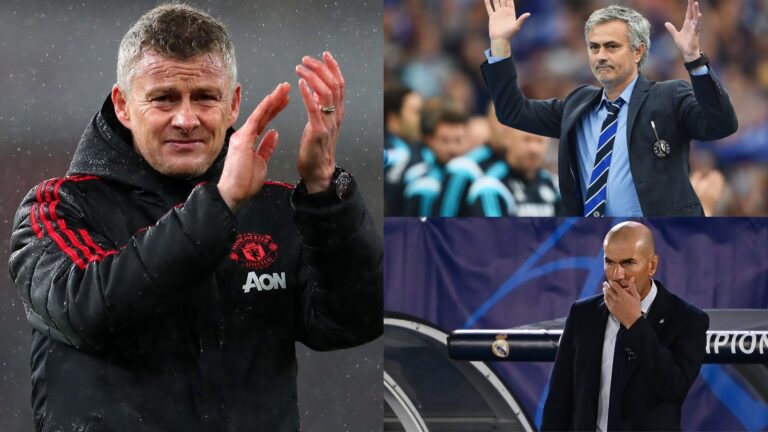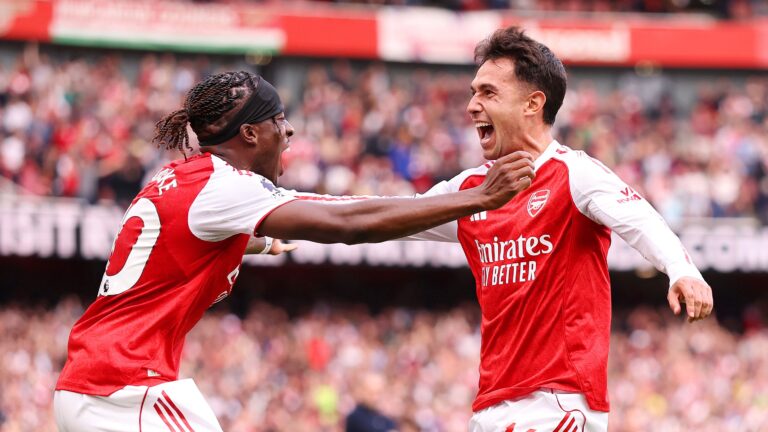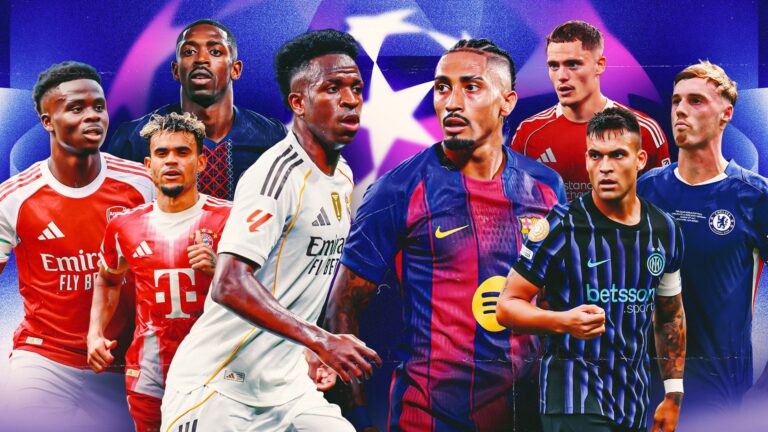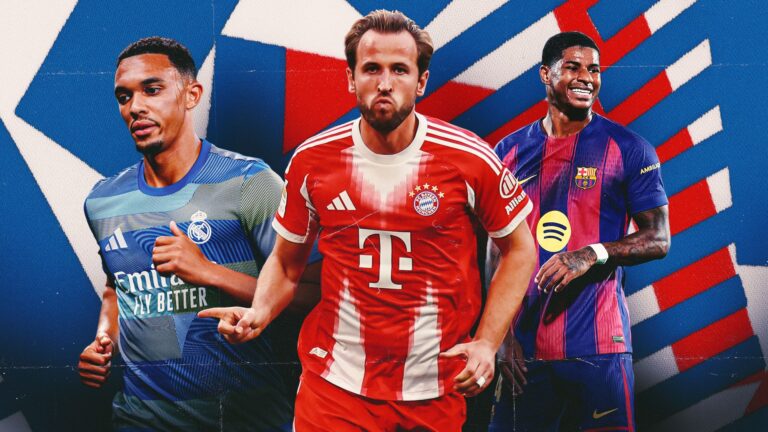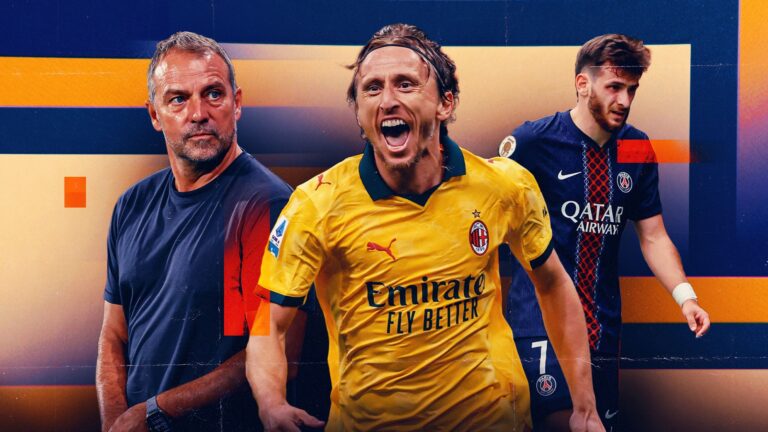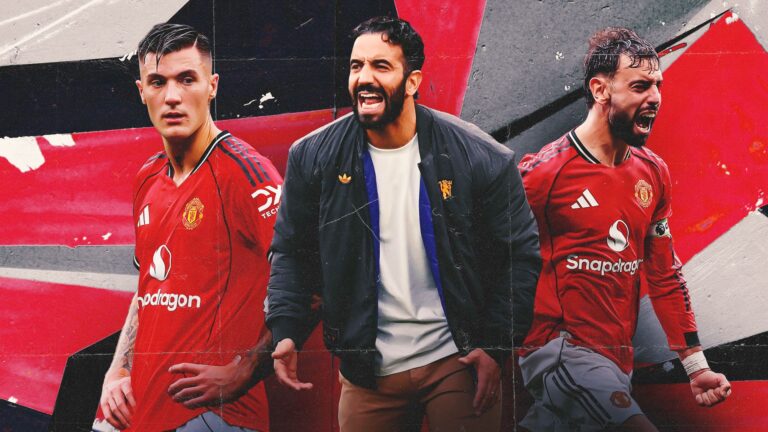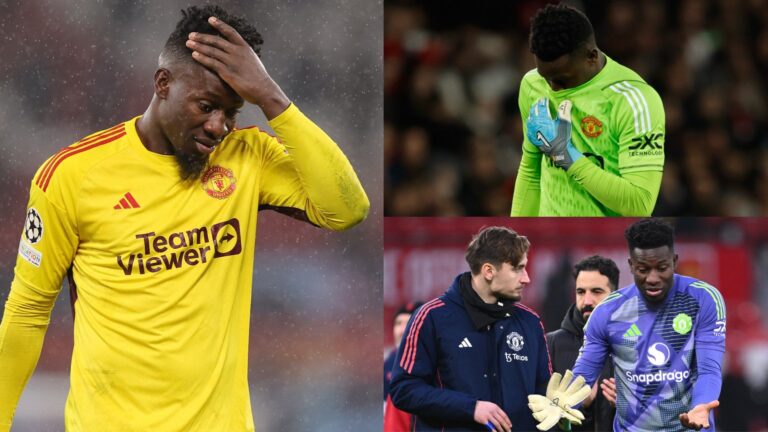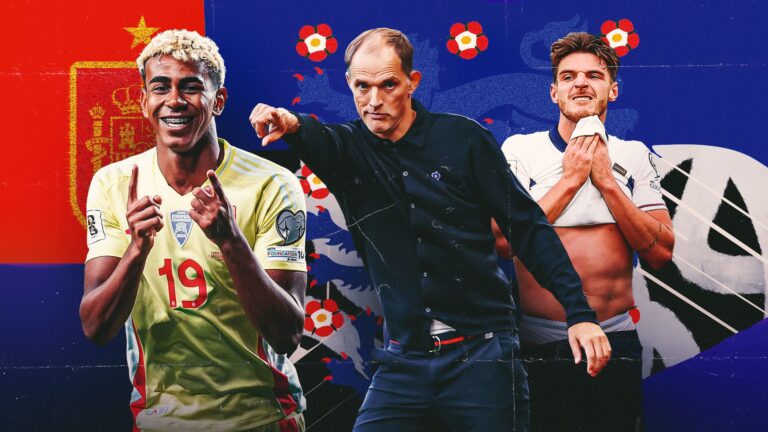Towards the tail end of Paris Saint-Germain‘s remarkable 2024-25 campaign, Ruud Gullit admitted that he was utterly enamoured with Luis Enrique’s thrilling team. Just like everyone else, the Dutch legend had been captivated by the French club’s wonderful wingers, but it was Vitinha’s play-making in the middle of the park which really blew Gullit away.
"He wasn’t even good enough to play for Wolves and now he’s the best player at Paris Saint-Germain!" the former AC Milan and Netherlands attacker told reporters at the Laureus World Sports Awards.
Gullit wasn’t exaggerating either – at least, not about Vitinha being PSG’s best player. He is the man that makes the treble-winners tick. And, clearly, the talent had always been there, even during his unsuccessful loan spell at Molineux.
But how did Vitinha go from a Wolves reject to a PSG superstar in four years? BALLGM charts the remarkable rise to prominence of one of the new members of our World-Class Club…







Towards the tail end of Paris Saint-Germain’s remarkable 2024-25 campaign, Ruud Gullit admitted that he was utterly enamoured with Luis Enrique’s thrilling team. Just like everyone else, the Dutch legend had been captivated by the French club’s wonderful wingers, but it was Vitinha’s play-making in the middle of the park which really blew Gullit away.
“He wasn’t even good enough to play for Wolves and now he’s the best player at Paris Saint-Germain!” the former AC Milan and Netherlands attacker told reporters at the Laureus World Sports Awards.
Gullit wasn’t exaggerating either – at least, not about Vitinha being PSG’s best player. He is the man that makes the treble-winners tick. And, clearly, the talent had always been there, even during his unsuccessful loan spell at Molineux.
But how did Vitinha go from a Wolves reject to a PSG superstar in four years? BALLGM charts the remarkable rise to prominence of one of the new members of our World-Class Club…
Despite Wolves’ propensity for signing Portuguese players, due to the close ties between the club’s owners, Fosun International, and super-agent Jorge Mendes, Vitinha’s move to Molineux in September 2020 still came as something of a surprise.
The Porto academy graduate had only made his professional debut eight months previously and had yet to start a single league game at senior level. However, Porto’s Financial Fair Play (FFP) problems necessitated a move, so one of their most promising youngsters was sent out on loan with a view to a permanent €20 million (£17m/$23m) transfer.
The presence of so many of his compatriots at Wolves undeniably helped Vitinha settle into his new surroundings – particularly as he arrived during the pandemic – but it wasn’t all positive from a sporting perspective, as it meant having to compete with more established Portuguese players such as Ruben Neves and Joao Moutinho for a place in Nuno Espirito Santo’s starting line up.
“Everybody saw the ability was there,” the former Wolves boss recently told reporters. “But you have to consider the impact of the physicality. We signed him when he was 20, and he was just getting used to the senior level, which was a big impact. And I have to be honest with you: we had Joao Moutinho [in Vitinha’s position] and he was another amazing player.
“So, sometimes young players who join can have the talent, but it is the coach who makes the decisions. At that time, the midfield was Moutinho and Ruben Neves, so it was not easy for Vitinha. But he played a lot of games, went back to Porto and his level started rising and rising.”
Wolves may have ended up regretting their decision not to take up their option to buy Vitinha, but he looks back on his season-long stay at Molineux as a pivotal period in his development.
The combative but cultured playmaker realised quite quickly that his style of play wasn’t a good fit for Nuno’s counter-attacking game, but he still ended up featuring 19 times in the Premier League, and starting seven times in total in all competitions.
“It didn’t go as I liked nor wanted it to,” Vitinha admitted to The Times. “But I tried, I did my best. It was a great year of learning.”
The rejection also spurred him on, making the youngster even more determined to prove himself at the highest level – and without changing his progressive approach to the game.
Indeed, former Wolves defender Fernando Marcal would later reveal in an interview with L’Equipe that Vitinha was not in the least bit discouraged by his failure to secure a permanent transfer.
“The coach was hard on him,” the Brazilian revealed. “Despite doing amazing things in training, he couldn’t convince him. Nuno wanted Vitinha to keep it simple, to release the ball more quickly. He tried to follow instructions but he didn’t want to lose his identity. So, I asked him how he thought the following season would go for him and he replied: ‘I’m going back to Porto, I’m going to smash it there and the season after I’ll be playing for one of the eight best teams in Europe.’
“I thought to myself, ‘Wow, this guy can’t get a game at Wolves and he thinks he’s gonna sign for Man City or a club like that? He’s a bit crazy!’ But no, he certainly wasn’t.”
As Marcal pointed out, Vitinha’s bold prediction proved prophetic, because after a stellar season at the Dragao, featuring 47 appearances while securing a domestic double, the midfielder was snapped up by PSG for €41.5m (£36m/$49m) in the summer of 2022.
The Parc des Princes dressing room was like a dream world for Vitinha; being surrounded by Lionel Messi, Neymar and Kylian Mbappe was a truly surreal experience. It was also challenging, though. The forwards’ refusal to do any defensive work meant that Vitinha was left with an awful lot of “chores”, as he put it – and securing their respect wasn’t easy either.
In just his second Ligue 1 outing, Vitinha decided against playing a pass to Mbappe and opted instead to pick out Messi instead, which resulted in the visibly frustrated Frenchman petulantly turning his back on the play. It was a moment that rather summed up the pervading sense of entitlement at Parc des Princes at the time – and helps explain why Vitinha and others were so happy with PSG subsequently shifting their focus from signing superstars to recruiting young players of enormous potential.
“The way that they want to build the team now, the long-term vision, it’s the best way,” Vitinha enthused last season.
Investing in youth has paid off spectacularly for PSG, with the likes of Bradley Barcola, Joao Neves, Willian Pacho, Khvicha Kvaratskhelia and Desire Doue all playing key roles in their historic treble – along with the two best signings of PSG’s famous 2021 summer transfer window, Achraf Hakimi and Nuno Mendes.
Of course, it also helped that Ousmane Dembele finally lived up to the hype he first generated as a teenager nearly a decade ago, and PSG definitely wouldn’t have won the Champions League without their resurgent shot-stopper Gigi Donnarumma – or veteran skipper Marquinhos, a true leader on and off the pitch.
It was Vitinha, though, who tied the whole team together, having benefited arguably more than any other player from Luis Enrique’s appointment as coach in the summer of 2023. Vitinha couldn’t convince Nuno of his qualities, but he had the full support of Luis Enrique right from the start – and responded superbly to the new coach’s brutal honesty.
“The best thing about him is that he’s very direct,” Vitinha told The Times. “He will not lie to you. What he wants to say, he says. So you don’t get the wrong impression with him. It’s a very good thing for a player. You know what the coach thinks about you all the time. I like it a lot. Sometimes, coaches are not so direct, to protect themselves.”
Unsurprisingly, Vitinha’s second season in Paris went far better than his first and, even before Mbappe left, Luis Enrique hailed the Portuguese as PSG’s most important player. His influence could be clearly seen and felt everywhere. For example, Neves admitted that he wouldn’t have slotted so seamlessly in the PSG side without the help of Vitinha, who also lifted the spirits of his team-mates after the unlucky first-leg loss to Liverpool in the last 16 of the Champions League by publicly promising to turn the tie around at Anfield.
That they did so was primarily down to the way in which Vitinha, in conjunction with Neves and Fabian Ruiz, controlled the game on Merseyside. He was just utterly integral to PSG’s play – and that was nothing new.
As Luis Enrique had previously enthused, “Vitinha is unique. In possession, he is vital for us in his pivot role, he manages the ball perfectly, he does not lose it, and brings a lot to the team. He is strong physically, mentally, and he plays a difficult and complicated role in the PSG midfield. He embodies the perfect midfielder.”
The numbers unquestionably support that claim. No player has completed more passes in the Champions League over the past two years than Vitinha (1965), who boasts a 93.71 percent success rate – which is frankly ridiculous for such a risk-taking playmaker who created as many chances as Vinicius Jr (42) during the same timeframe. To underline his all-round excellence, Vitinha also ranked second for possession won (159 times) and joint-third for interceptions (34).
“He’s one of the best players in the world in his position, without a doubt,” Luis Enrique said. “I don’t see a player better than him in midfield.”
And nor do we, in fairness. In Vitinha, there really is no more deserving addition to BALLGM‘s World-Class Club in 2025.


